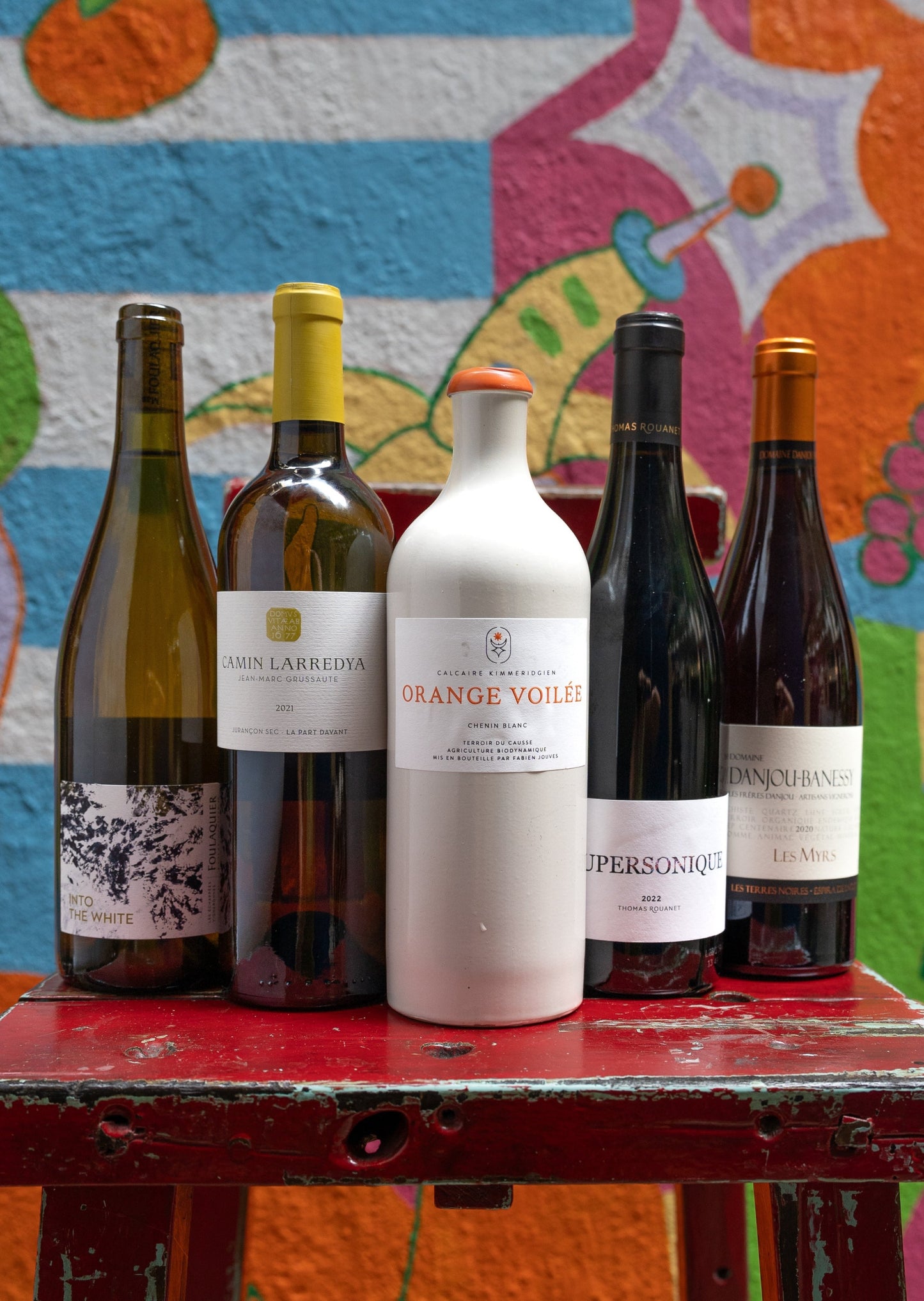Let's discover Occitanie wines tasting 30.05.2024
Let's discover Occitanie wines tasting 30.05.2024
Couldn't load pickup availability
Finish off the celebration of Occitanie's offerings with us at the cellar! We have a bit of everything here to top off this month, just for you to say bon journée to the French GourMay with a bang until next year. A great wine discovery line-up accompanied by cheeses from the region.
THUR 30.05 | 7-9 PM | La Cabane Wine Cellar
ticket cost includes 5 wines + artisanal cheeses and cold cuts
What we'll drink:
Mas Foulaquier Into the White 2023 - a unique blend from Pic Saint-Loup. No spoilers!
Camin Larredya Jurançon Sec La Part Davant 2021 - you may have heard of Jurançon... but have you tried it dry?
Fabien Jouves Orange Voilée Gres 2022 - when you age your wine in an amphora but you still want it to keep aging in-vessel after release... a tannic, oxy Chenin from one of Cahor's rising stars.
Domaine Thomas Rouanet Supersonique 2022 - from the little-known commune of Creissan, this one speaks volumes on what wine culture is sleeping on.
Danjou-Banessy Les Myrs 2020 - the domaine may be in Espira de l'Agly, but there is nothing "Agly" about it. A beautiful cuvée from winemakers with big "Espirations".
What we'll nibble on:
Special cheeses from Occitanie: Rocamadour, Rove Des Guarrigues, Roquefort, Perail des Cabasses, Gramat fermier. And some saucisson.
Share

Organic, Biodynamic and Natural wine. What’s the difference?
To understand this concept and its various ramifications, it is necessary to keep something clear in mind: before the 20th century and the spreading of affordable synthetic fertilisers, all farming was organic. When the shift to the use of synthetics and pesticides happened, it became necessary to diversify traditional organic farming from the new modern farming.
ORGANIC WINE
Simply put, organic farming forbids the use of synthetic fertilisers, synthetic pesticides, herbicides, or genetically modified organisms. The basic requirements are generally specific and engage the farmers not to use any chemical fertilisers and other synthetic products in the vineyard. It does not prevent the vintner from using the conventional winemaking process after harvesting.
BIODYNAMIC WINE
Let’s take organic farming one step further: Biodynamic. The creator of this agricultural system is the Austrian philosopher Rudolf Steiner, who developed the principles of biodynamics in a series of lectures given in 1924 in Germany. Here lies the foundation of true organic wines, with a strict limit in the use of additives, stringent requirements and at the end obtaining a biodynamic certification.
NATURAL WINE
The previous definitions are usually, and rightfully, associated with it, because most natural wine is also organic and/or biodynamic. But not vice versa!
Natural wine is wine in its purest form, simply described as nothing added, nothing taken away, just grapes fermented. No manipulation whatsoever, minimal intervention both in the vineyards and in the winery. Healthy grapes, natural yeast and natural fermentation, with no filtration nor fining. Sounds easy, right? However, making natural wine is unforgiving and it requires a bigger amount of work than conventional wine. To this day, natural wine has no certification yet.

